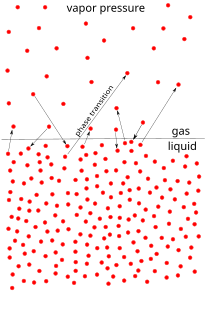
There are assumptions and approximations in this statement, which is nevertheless valid under many practical circumstances. For example, it assumes there is no chemical reaction between the substance that is evaporating and the rest of the gas (e.g., iodine and air). It also assumes an ideal gas for the vapor phase, thus there are corrections when the pressure is high.
Correction: Yes, you are right, a liquid boils when its vapor pressure equals the total pressure of the surroundings. However, what I stated about the conditions for equilibrium are correct (equilibrium at any temperature).
[Edited on 19-3-2015 by annaandherdad]

